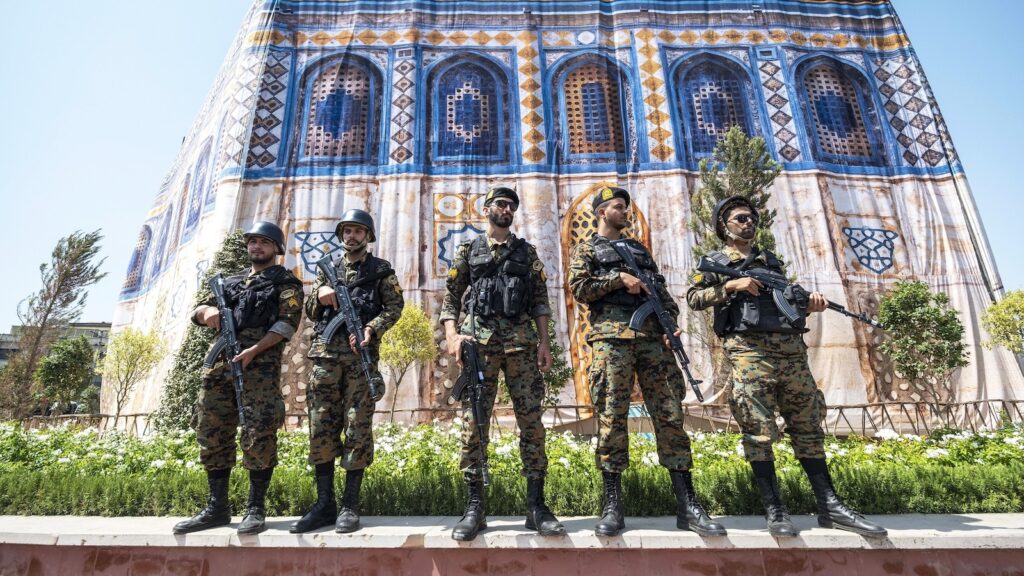
TEHRAN, Iran – In a swift and controversial move, Iran’s judiciary announced the execution of three men accused of spying for Israel, intensifying the nation’s internal crackdown following a recent ceasefire with Israel.
Immediate Impact
The executions, carried out within 48 hours of the ceasefire between Iran and Israel, were part of what Iranian authorities describe as a “season of traitor-killing.” This brings the total number of executions on espionage charges during the 12-day conflict to six.
Iran’s judiciary claims the men were linked to Israel’s Mossad intelligence agency, but human rights activists argue they were Kurdish day-laborers denied fair trials.
Key Details Emerge
The announcement comes as Iran grapples with the aftermath of a war that reportedly left at least 627 people dead and injured 4,870, according to Iranian officials. The conflict also resulted in significant infrastructure damage across the country.
Despite the turmoil, Iran’s regime remains in power, defying earlier predictions of a possible regime change due to the destruction of military infrastructure and the death of high-ranking commanders.
By the Numbers
Over 700 individuals have been arrested for alleged ties to Israel, as reported by Iranian intelligence and security forces.
Expert Analysis
Azadeh Pourzand, a Middle East and human rights expert, criticized the lack of due process, calling the regime “corrupt” and warning of increased repression.
“This is collective punishment against ordinary people … to instill fear domestically and make points internationally,” Pourzand told ABC News.
Regional Implications
The timing is particularly significant because the crackdown follows the 2022 “Woman, Life, Freedom” protests, which were met with harsh government responses, including hundreds of deaths and thousands of imprisonments.
Many Iranians are wary of the regime’s intentions, fearing further repression under the guise of national security.
What Comes Next
As the global focus shifts, Iranian citizens remain apprehensive about their future under a regime determined to maintain control. The recent legislative changes to the “Espionage Law for Dealing with Citizens” and a new committee to monitor online activities signal a tightening grip on personal freedoms.
Israeli officials have not commented on the arrests, but Mossad Chief David Barnea emphasized continued vigilance over Iran’s activities.
“We will continue to keep a close eye on all the projects in Iran that we know very well,” Barnea stated.
Background Context
This development builds on a history of tension between Iran and Israel, exacerbated by Iran’s internal challenges, including economic hardships worsened by U.S.-led sanctions and widespread corruption.
Iran’s Supreme Leader Ayatollah Ali Khamenei recently made his first public appearance since the conflict began, praising Iran’s military efforts and warning of the consequences of aggression.
“Any aggression against the Islamic Republic will come at a cost — a heavy cost,” Khamenei asserted in a televised address.
However, the cost may ultimately fall on Iranian citizens, as the regime seeks to assert its dominance amid shifting global attention.
Forward-Looking Implications
Critics fear that the current regime’s actions signal a return to more severe repression, with increased surveillance and control over dissent. As Iran navigates this “defeated and wounded” phase, the international community watches closely, aware of the potential for further instability.
Pourzand and other human rights advocates continue to voice concerns about the regime’s tactics, urging global attention to the plight of Iranian citizens.
The move represents a significant shift from previous strategies, as Iran doubles down on internal security measures, leaving many to wonder what the future holds for a nation at a crossroads.






